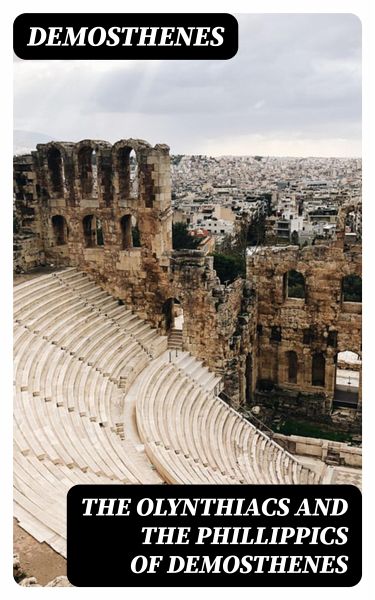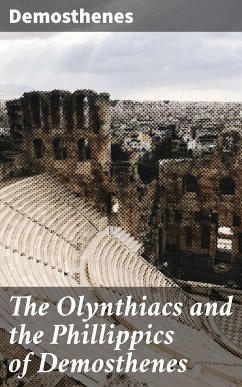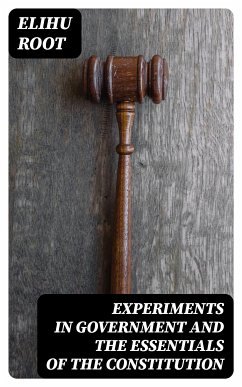
The Olynthiacs and the Phillippics of Demosthenes (eBook, ePUB)
Literally translated with notes
Übersetzer: Kennedy, Charles Rann
Versandkostenfrei!
Sofort per Download lieferbar
0,49 €
inkl. MwSt.
Weitere Ausgaben:

PAYBACK Punkte
0 °P sammeln!
In 'The Olynthiacs and the Philippics of Demosthenes,' the iconic Athenian statesman and orator delivers a powerful critique of Macedonian hegemony in the fourth century BCE. The Olynthiacs, a series of three speeches, call for Athenian intervention in the face of Philip II's expansionist ambitions, while the Philippics vehemently urge a united response against the imminent threat posed by Macedon. Utilizing a passionate and eloquent rhetorical style, Demosthenes crafts artful appeals to ethos, pathos, and logos, masterfully engaging his audience and invoking the collective spirit of the Athen...
In 'The Olynthiacs and the Philippics of Demosthenes,' the iconic Athenian statesman and orator delivers a powerful critique of Macedonian hegemony in the fourth century BCE. The Olynthiacs, a series of three speeches, call for Athenian intervention in the face of Philip II's expansionist ambitions, while the Philippics vehemently urge a united response against the imminent threat posed by Macedon. Utilizing a passionate and eloquent rhetorical style, Demosthenes crafts artful appeals to ethos, pathos, and logos, masterfully engaging his audience and invoking the collective spirit of the Athenian democracy to act decisively. His works remain significant not only for their historical context but also for their exemplary rhetorical structure, serving as a guide for statesmanship and civic responsibility. Demosthenes (384-322 BCE) is often heralded as one of the greatest orators of antiquity, whose lifelong dedication to the art of rhetoric stemmed from his struggles with speech impediments. His rigorous self-improvement and commitment to political life were deeply motivated by the challenges faced by Athens during his lifetime, particularly the rise of Macedonian power under Philip II and Alexander the Great. Such historical pressures informed his impassioned pleas for unity and action, reflecting his fervent belief in the resilience of Athenian democracy. This compelling collection is essential reading for anyone interested in ancient Greek politics, rhetoric, and history. Demosthenes' persuasive mastery not only illuminates his immediate historical context but also provides timeless insights into the dynamics of power, civic engagement, and the art of persuasion. Engaging with 'The Olynthiacs and the Philippics' invites readers to reflect on the enduring relevance of rhetoric in the face of political adversity.
Dieser Download kann aus rechtlichen Gründen nur mit Rechnungsadresse in A, B, BG, CY, CZ, D, DK, EW, E, FIN, F, GR, H, IRL, I, LT, L, LR, M, NL, PL, P, R, S, SLO, SK ausgeliefert werden.













